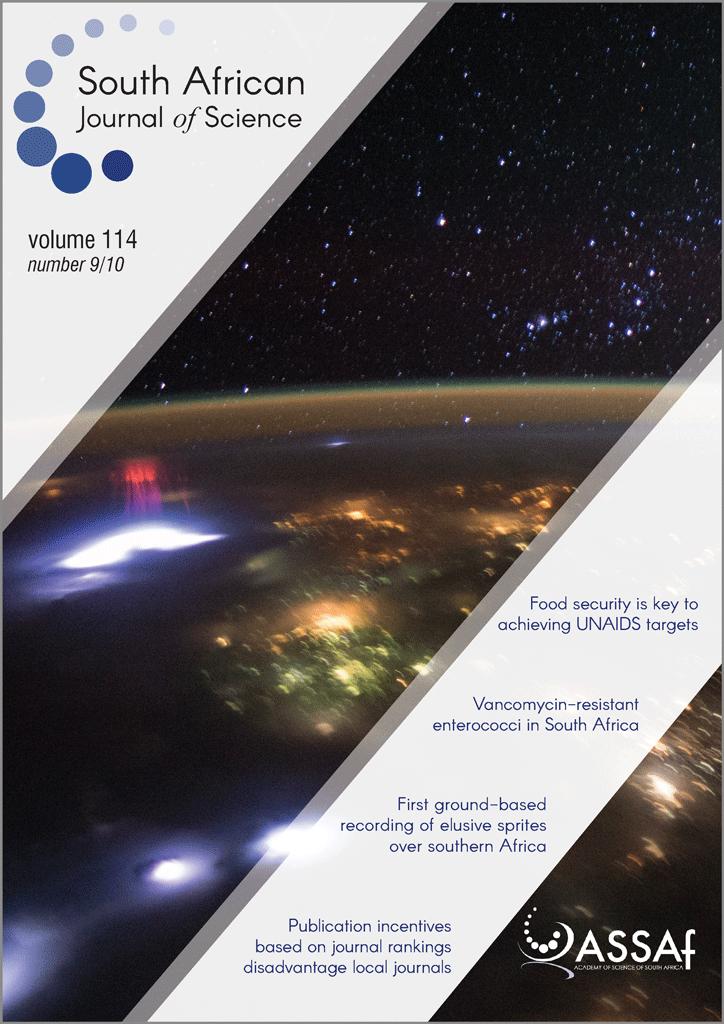Food insecurity, HIV status and prior testing at South African primary healthcare clinics
DOI:
https://doi.org/10.17159/sajs.2018/4407Keywords:
household food insecurity, HIV counselling, HIV testing, primary health care, South AfricaAbstract
HIV and food insecurity are two prominent causes of morbidity and mortality in sub-Saharan Africa. Food insecurity has been associated with risky sexual practices and poor access to healthcare services. We describe the association between household food insecurity and previous HIV testing and HIV status. We used logistic regression to analyse the association between food insecurity and prior HIV counselling and testing (HCT) and testing HIV positive. A total of 2742 adults who presented for HCT at three primary healthcare clinics in KwaZulu-Natal, South Africa, participated in the study. The prevalence of household food insecurity was 35%. The prevalence of food insecurity was highest in adults who had incomplete high schooling (43%), were unemployed (39%), and whose primary source of income was government grants (50%). Individuals who were food insecure had significantly higher odds of testing HIV positive (adjusted odds ratio 1.41, 95% CI 1.16–1.71), adjusted for demographic and socio-economic variables. There was no association between food insecurity and prior HCT. The findings of this study highlight the important role food insecurity may play in HIV risk. Interventions to turn food-insecure into food-secure households are needed to reduce their household members’ vulnerability to HIV acquisition. The absence of such interventions is likely to severely impact ambitious global targets of ending AIDS by 2030 through the 90-90-90 targets and test-and-treat-all initiatives.
Significance:
- One in three adults presenting for HIV counselling and testing came from households with some degree of food insufficiency.
- Experience of food insecurity was very high in young people who did not complete high school and were currently not studying.
- Findings support the need for socio-economic and structural interventions to transform food-insecure into food-secure households.
- Failure or lack of such interventions will contribute to the failure to achieve global targets like the UNAIDS 90-90-90 programme.
Published
Issue
Section
License

All articles are published under a Creative Commons Attribution 4.0 International Licence
Copyright is retained by the authors. Readers are welcome to reproduce, share and adapt the content without permission provided the source is attributed.
Disclaimer: The publisher and editors accept no responsibility for statements made by the authors
How to Cite
- Abstract 1642
- PDF 1223
- EPUB 307
- XML 469












.png)